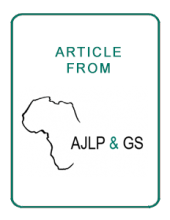/ library resources
Showing items 1 through 9 of 10.The political dysfunction that had come to characterize an imploding Zimbabwean economy is beyond dispute.
Land and natural resource tenure security is a central yet often neglected area for economic development and poverty reduction in the developing world. Land is fundamental to the lives of poor rural people. It is a source of food, shelter, income and social identity.
There is a gap between land tenure and the physical land giving room for impersonation, multiple allocation and sale of plots, loss of possession, land racketeering and fraud through forgery.
Community land and natural resources lie at the heart of social, political and economic life in much of rural Africa.
Rwanda has undertaken a land registration and titling program since 2008 with a registration of 10.3 million land parcels in 2013.
Land regularization is an essential ingredient in the formalization on land rights and it plays an important role in improving tenure security of the urban poor.
Effective reform pathways for addressing women’s access to land and tenure security in Africa are yet to be found despite their role in feeding the population.
In Zambia, security of tenure for communities residing under customary land tenure settings has in recent years increasingly come under threat owing to the pressures of high rate of urbanization, speculation, subdivision and conversion to state land, which effectively excludes marginal population
This chapter investigated threats of statutory tenure on customary land. The study was primarily qualitative in nature and adopted a case study approach.
Pagination
Land Library Search
Through our robust search engine, you can search for any item of the over 73,000 highly curated resources in the Land Library.
If you would like to find an overview of what is possible, feel free to peruse the Search Guide.

